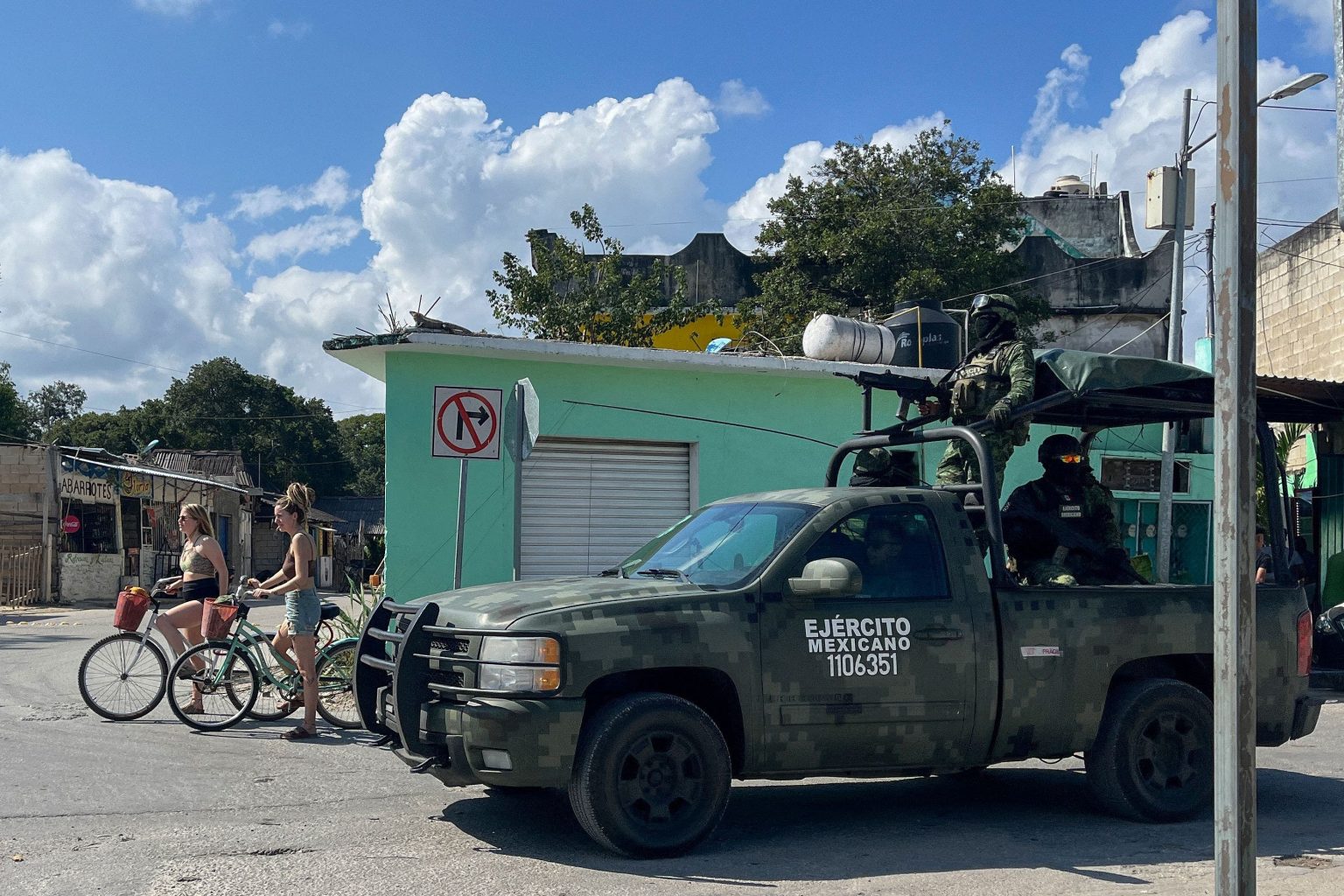The Mexican army has confirmed that drug cartel-operated bomb-dropping drones have killed soldiers in the western state of Michoacan. Defense Secretary Gen. Luis Cresencio Sandoval did not provide exact figures on the number of casualties suffered in the attacks, but he stated that over 260 drone-bomb incidents occurred in 2023 alone. The Jalisco cartel is known for equipping drones with metal bomb casings and has turned the region into a warzone with IEDs, trenches, and armored vehicles. The army continues to encounter more road-side bombs than drone-dropped ones, but personnel have suffered wounds and even deaths in these attacks.
In August, the only other reported cartel bomb attacks took place in 2023, during which a total of 42 soldiers, police, and suspects were wounded by IEDs in the first seven and a half months of the year, up from 16 in all of 2022. The Mexican army is now adding anti-drone systems to combat these threats. Additionally, Mexico’s Navy acknowledged that two military helicopter crew members died earlier in the year when their chopper crashed into the Pacific Ocean while chasing cocaine-smuggling boats. The U.S. Navy has agreed to assist in recovering the sunken helicopter and the crew members’ remains.
The Jalisco and Sinaloa cartels have flooded major U.S. cities with meth and fentanyl, and they use violence to protect their turf, according to the U.S. Drug Enforcement Administration. The cartels have caused the worst drug crisis in U.S. history, with wholesale-level traffickers and street dealers extending the reach of these powerful organizations. Recently, 12 traffickers tied to the Jalisco cartel were sentenced to 4.5 to 40 years in federal prison for coordinating a shipment of nearly 200 kilograms of liquid methamphetamine worth $9.9 million. Former President Trump has stated that strikes against Mexican drug cartels are still on the table as fentanyl and overdose deaths continue to plague the United States.
This escalation in violence and use of drones by Mexican drug cartels highlights the ongoing challenges faced by law enforcement and military authorities in combating organized crime in the region. The inclusion of drone-dropped bombs in cartel attacks poses a new threat to security forces, necessitating the deployment of anti-drone systems to mitigate these risks. The cartels’ activities not only impact Mexico but also have extensive reach into the United States, contributing to the country’s drug crisis and leading to devastating consequences for communities affected by the influx of drugs and violence.
The collaboration between Mexican and U.S. authorities, as seen in the recovery efforts for the sunken helicopter and joint operations in combating drug trafficking, reflects the shared commitment to addressing the challenges posed by the cartels. The involvement of the U.S. Navy in supporting these efforts underscores the transnational nature of the drug trade and the need for international cooperation in addressing the complex issues related to organized crime. The DEA’s report on the activities of the Sinaloa and Jalisco cartels underscores the far-reaching impact of these criminal organizations and the urgency of addressing the root causes of drug trafficking and addiction.
Overall, the situation in Mexico highlights the interconnectedness of security challenges between the United States and its southern neighbor, underscoring the need for a comprehensive and collaborative approach to combatting organized crime and drug trafficking. The ongoing violence and use of drones by cartels underscore the evolving tactics employed by criminal organizations and the need for innovative strategies to address these threats. By working together and leveraging resources and expertise, Mexican and U.S. authorities can enhance their efforts to disrupt and dismantle cartels and prevent further harm to communities on both sides of the border.


